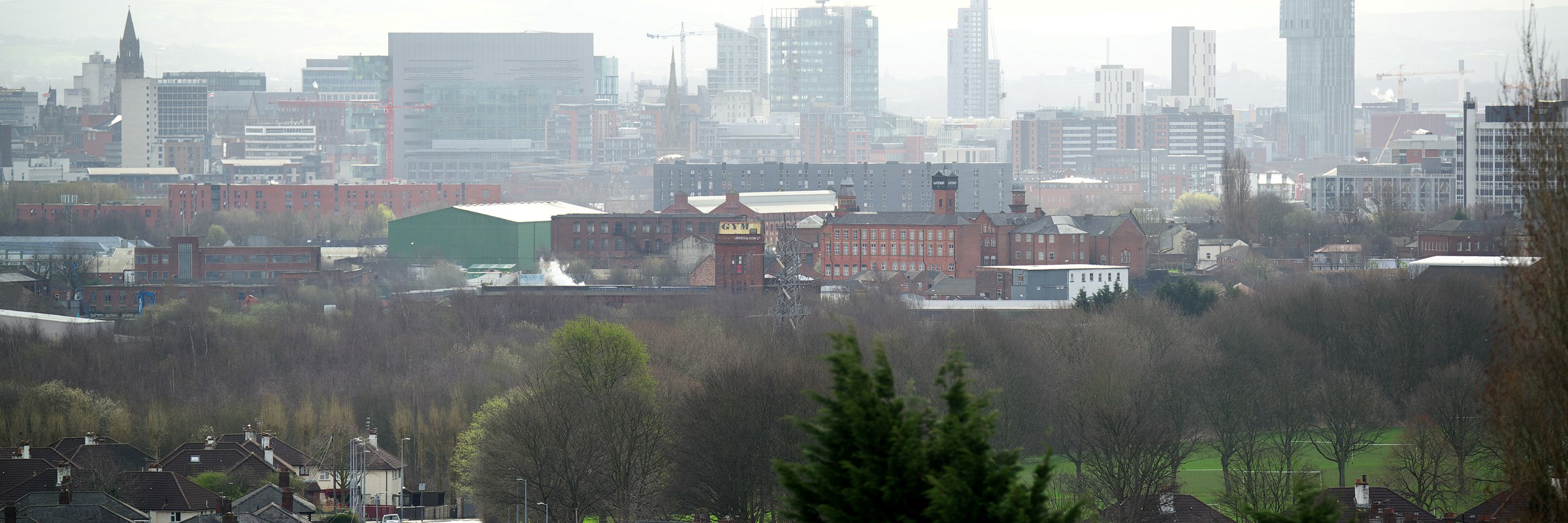
City-region to be first outside London to have local control over buses
- Mayor decides to implement bus franchising in major milestone for integrated transport network for Greater Manchester
- Biggest change to the region’s bus network since deregulation in 1986
- Greater Manchester will be first city-region outside London to have fully franchised buses under local control
- Local control will mean simple fares and tickets with price capping; integration between trams and buses, and a ‘one-stop-shop’ for travel information and customer support
- GMCA will coordinate and invest in the bus network – setting the routes, frequencies, fares and standards
The Mayor of Greater Manchester, Andy Burnham, has made a landmark decision to take control of buses in the biggest shake-up to Greater Manchester’s transport network in over 30 years, as part of plans for a joined-up and truly passenger-focused transport network.
Greater Manchester will be the first city-region outside London to have buses that are under local control, allowing local leaders to set routes, frequencies, fares and tickets. By the end of 2025, this will allow Greater Manchester Combined Authority (GMCA) to fully integrate buses with the rest of the transport network, as part of a passenger-focused network with easy end-to-end journeys.
Franchising, or local control, will deliver passenger benefits, including simpler fares and ticketing, with the ability to offer price capping for journeys across both buses and trams, including a daily cap, so passengers never need to pay more for their journey than they have to. It will also enable better joined-up planning between bus and tram journeys so passengers will be able to quickly and easily change between them. It will also mean a ‘one-stop shop’ for travel information and customer support, as well as consistent standards for a high-quality passenger experience across the network. GMCA will also be able to develop one identity for Greater Manchester’s transport network, which is attractive, clearly recognisable and easy for passengers to understand.
Franchising will also support GMCA’s objectives as set out in the Greater Manchester Strategy to become the best place in the world to grow up, get on and grow old. With buses under local control, Greater Manchester leaders will be able to connect people by public transport to work, home, education, culture and leisure. Bus franchising also means GMCA can set environmental standards for a cleaner, greener bus fleet, helping to meet the city-region’s targets to tackle the climate emergency, reduce harmful emissions and clean up our air.
To ensure a smooth transition franchising will be introduced in phases, with the first franchised buses starting to run in Bolton and Wigan in early 2023 and the move to a fully franchised system across the whole of Greater Manchester by the end of 2025. In the period up to full transition, GMCA and TfGM will work with central government and bus operators to plan and improve bus services to best support Greater Manchester’s economic recovery.
Mayor of Greater Manchester, Andy Burnham, said: “Public transport is essential for any successful city-region, and our buses are the backbone of Greater Manchester’s transport network. As Greater Manchester recovers from the pandemic and grows in the future, we must develop our public transport network, alongside walking and cycling, to support the increasing number of journeys we will all be making.
“In Greater Manchester, we’ve always done things differently and been trailblazers especially in the field of transport; we had the first passenger railway; the first ‘bus’ route with a horse-drawn carriage and now I’ve decided that we will be the first outside London to run our buses differently – under local control, so that decisions are made at a local level for the benefit of our passengers.
“My decision will mean that we can integrate our buses as part of a joined-up network, so passengers can easily switch between different types of transport. It means simpler fares and ticketing with price capping, so no one pays more than they need to. It also means a ‘one-stop-shop’ for travel information and a single identity for the whole public transport network, which is attractive, clearly recognisable and easy for passengers to navigate and understand.
“Ultimately, this means a different way of moving around for everyone in our city-region, as we move towards Our Network; our ambition of a world-class, integrated transport network which can unlock opportunity for all; providing access to jobs and education, reducing pollution, attracting investment and reducing isolation.
“Bringing buses into local control will be the biggest change to Greater Manchester’s buses since de-regulation in 1986. But as with all change for the better, it will take time; it won’t happen overnight and we are just at the start of our journey. I hope the people, businesses and communities of Greater Manchester come with us on the journey, so we can create a joined-up public transport network that works for the benefit of passengers and our city-region.”
To find out more on franchising and what it means for passengers and for Greater Manchester visit www.tfgm.com/our-buses
Article Published: 25/03/2021 14:54 PM



